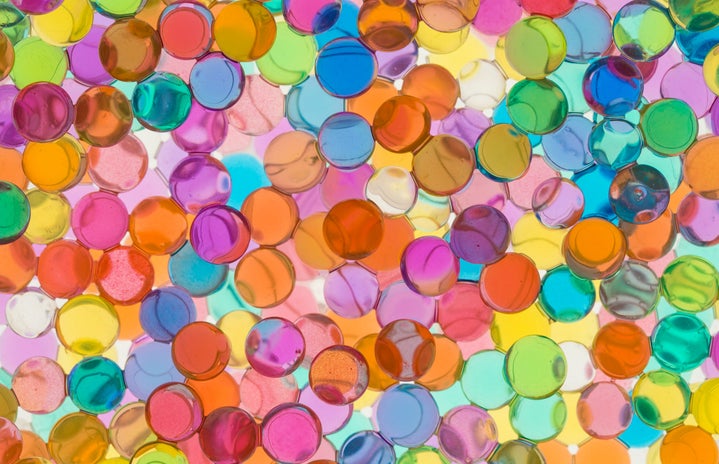Some of you may, in recent years, have made the leap of living alone. Others will perhaps be sharing accommodation with friends for the first time. Both of these, for anyone living with depression and other mental illnesses, is a huge and courageous feat. Living alone, be it completely or occupying a private space away from home, can be incredibly liberating but also daunting. I want to share with you a few tips on how to self-care and thrive in this new environment. But first, let me congratulate you on making this huge step!
In my first year of university, and like most students, I lived in halls. For the first time, I was entirely self-sufficient. In my second year, I lived in a house with three girls. In my third, and to date, I moved into my own flat. In all three of these occupancies I found the same tricks and considerations to be relevant, and I rely on them every single day. They may, perhaps, come as no surprise or even be obvious at first glance, but isn’t it true that the smallest and simplest of things become the most important in our quests for happiness?
There is no fast cure for depression. It is a pervasive and devastating illness. I myself have lived with it for most of my life, and I am no stranger to its tricks and traps. There are times when giving in feels the only choice, and other times where I can face an entire day with my face turned from its reaching grasp and feel I have conquered it. Each experience is unique to its owner, but there are many things we can all do to make living with depression that little bit easier.
The first hurdle we face when living alone is isolation. For much of our childhood and adolescent life we take for granted the company of our family. When you finish school or college and go home, there is usually a presence there of parents or siblings. Living at home, we expect and grow used to company and cohabitation; at the least, the knowledge of another person residing nearby is a constant – and sometimes unconscious – comfort. When we go to make a cup of tea, or even use the loo, when we pass by a relative or go about our tasks in the presence of another, these interactions are undeniably important for our mental wellbeing, and our reliance upon them is easy to overlook.
When we leave home with our things packed in boxes, transfer them into a new space on the other side, and the door at last closes behind a helpful parent or friend, there is a sudden sense of loss. What do we do with ourselves? Our belongings are put away and arranged just so. There are no clothes left to hang up, no items left to unbox, no person to offer a drink, no company to talk or cater to. The door has shut and that’s that. The goal has been achieved, we have the keys to a new place. What’s left is learning the art of living alone. And the art of living alone is an article in itself; a feat that the healthiest of individuals find challenging. How do you live alone when you have depression? How do you live alone when your own mind, your illness, is your biggest and most frightening enemy?
Environment
Our environment is crucial. The feel of the room, the temperature, the lighting, the smell, the atmosphere. All these things need to be taken into consideration. Creating a safe space for yourself is paramount. Many studies have been done on the importance of environment for mental health, and all of them agree that environment directly affects it. Safe and constant environments promote mental health; unsafe and unstable environments are detrimental to mental health. The area in which you live is a variable that is difficult to control, but the interior is easy.
It might sound glaringly obvious, but keeping your space clean and light is important. Now, I am not the tidiest person in the world, and there have been many times when I’d prefer to wear every item of clothing I own before even contemplating the washing machine. I don’t immediately do the dishes and cleaning the bathroom is a thing of nightmares. But I do them. As the years have gone on, I do them more often and with less time in between. It is something I stick to religiously. I have a one week rule: clean the kitchen once a week; clean the bathroom once a week; wash my clothes once a week; water the plants once a week; dust once a week; food shop once a week, and so on. And let me tell you that more often than not I have to absolutely force myself to do these things, because my instinct is to shrug my shoulders and intone c’est la vie.
But I know that when the depression crawls closer, when the weight of it drags my body through the floor, when bed is the only feasible option, and the world becomes a haze of black, these little things become monumental to survival. I do these chores always in the expectation of a depressive episode; I do these chores because I know that when it comes I want to have every tool at my disposal to get through it. A sink full of dishes, a dirty floor, a grimy bathroom, a messy bed, an overflowing wash bin, dead plants, a layer of stubborn dust, are only going to add to that depressive state. These states of living are going to make getting out of bed feel impossible. Why get out of bed when there’s only mess and dirt to wade through? Why eat when the fridge is empty? Why drink water when there are no clean cups? Why wash when the bathroom is dirty and there are no clean towels? You can see how this pattern of thinking can spiral into something incredibly dangerous. No one is going to do these things for you. Depression, at its worse, crushes a person’s instinct to eat, drink and wash, three basic necessities that are the difference between living and surviving. Keeping a clean environment may be obvious, but it is also a weapon you can wield in the face of your illness.
Environment is the most basic and most crucial tip to living alone with depression. Keeping it clean, keeping it warm, keeping the fridge stocked, is going to help you get through that next episode. Everything else is complimentary. Buying, keeping and nurturing plants, for instance, is a wonderful trick I’ve discovered. You can now buy cacti, ferns and other houseplants for pennies. Many of them have secret properties like air-purification that can benefit our environments. They can even teach us to nurture when we can’t nurture ourselves. Watering a fern, watching it grow, checking its roots, misting its leaves, is rewarding. Like having a pet, that sense of responsibility can soothe mental illness. Call me crazy, but I’ve come to love my houseplants and after reading a study in which plants were proven to grow faster in response to human kindness, I sometimes say good morning to them and give them a gentle pat. I know, I know.
Leaving the house
Whether you live in a flat, a house or shared accommodation, you know what I mean. There is nothing wrong with having a day inside, but having a day inside when you have depression can turn into two, and then a week, and then more. Isolation feels instinctual when you have a mental illness. Sometimes we just can’t face the world, and that’s ok. But when we are living alone, the importance of fresh air is undeniable. I often try to avoid this by convincing myself that I’d have to have a wash, do my hair and put my face on before stepping outside, but this is just not true. Learning to brush my teeth and throw my hair up and just go has been hugely beneficial to me. I put my head down and go for a walk, just to feel the fresh air and move my body and be in the company of other people. Going to get a coffee, walking through a park, grabbing a pint of milk, dog-watching. These things I can do without makeup. These things I can do to reconnect with a world that my depression has taught me to fear. When I start walking, I tell myself that it’s ok, that I am safe, that I am alive and a part of the world I fear so much. And I can go back home, even if it’s just five minutes later, feeling I have accomplished something huge, that I am not alone.
Identity
Curating your own sense of self and style is a great way to keep our environment favourable. It doesn’t matter if we get it wrong sometimes – god knows I’ve made some terrible decorating choices – because it is a reflection of who we are. For the first time, perhaps ever, we get to do whatever we want. No one is going to tell us to pick that shirt off the floor, or control the way we situate our furniture. If you want thirty houseplants, have thirty houseplants. If you want fluorescent cushions or to hang up a mirror you found in a skip, you can do that. Curating our identities is a step towards understanding who we are. Depression has many tools at its disposal, one of which is knocking down our self-esteem and sense of worthiness. Having an identity while enduring a mental illness can feel impossible, but it’s not. If we can experiment with our new environments, throw things into it that we love or enjoy, the less chance depression will have to deny the existence of our sense of self. I am forever up-cycling old furniture and bits of tatt with a vengeance, because when I do I feel I am sticking up a finger to that depressive claw and proclaiming my belief in my own identity. And when I am lying in bed, unable to get out, I can look out from the bundle of cold duvets and see all the things that I love, all the beauty that I’ve created, and a floor that is clean and swept, a plant that is in need of a drink of water, and find reason to rise. And rise we most certainly will.
Company
I’ve recently discovered that I can cook for eight people. Upon discovering this, I now pester my friends to come over so that I can feed them. Holding a gathering, or just having a close friend over for a glass of wine, is something I now rely on. I take pride in my space and enjoy making it welcoming to the people I love. It’s easy for us to isolate ourselves from our friends and family, because having a space of our own entitles us to privacy. I try to have friends over at least once a week so that I can reconnect and build on those relationships. We know that friends and family are the ones that will never fail to make us happy. They hold the tools to help us make difficult decisions. They make us laugh, cry and have an amazing ability to help us get very, very drunk. Having a housewarming or a gathering or holding a dinner party is a wonderful way to distract from dark thoughts and the desire to hide, but also to give us a sense of purpose and accomplishment. Feeding people is also known to be very therapeutic and can encourage us to nourish ourselves in the process. But importantly, these things don’t need to become big and daunting events. You can answer the door in your pyjamas, and sit on the sofa with a friend and a ridiculously large pizza. The people we love, and who love us unconditionally, don’t need grand gestures. Company is a reprieve. It is also a safe space in which to heal.
Ultimately, living alone with depression is going to be a challenge. We won’t always succeed in exercising these strategies, but the knowledge that they are there can be a comfort and a back-up when our mental health is vulnerable. For myself, I hope that this article brings some solace, and if I can ensure that at least one little houseplant is given a loving home, I’ll be one small step closer to my own sense of happiness.



